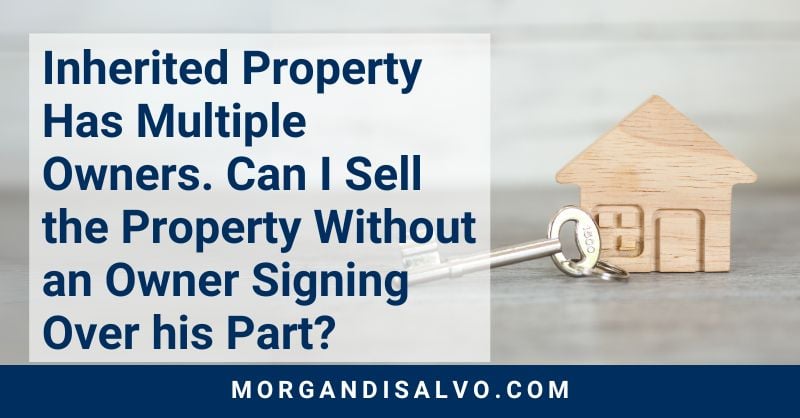Question: I have an inherited property with four owners (my siblings and me). Two of the owners have signed their parts over to me; therefore, I own three parts, and one owns one part. I’ve lived in the house since my parents died and have paid property taxes and done all the upkeep on the property by myself. How can I sell it without the other one part that belongs to my sibling?
Loraine’s Answer: You won’t be able to sell the entire property without the other sibling’s involvement because you aren’t the sole owner of the property. You might be able to find someone to buy your 3/4 interest, but that likely won’t get you full value for your interest. Having done work on, paid property taxes on, or been the only one to do anything regarding the property does not give you any additional power, does not make you the sole owner, and does not give you any right to sell or otherwise control what happens to your co-owner’s interest in the property. That said, if the property is sold, the sibling with the 1/4 interest may owe you something to the extent that you paid for things like property taxes that are the responsibility of both owners, and to the extent that your financial and other contributions improved the value of his interest in the property. That’s because when a property has multiple owners, all owners are responsible for the expenses associated with owning the property, and if your effort and expense helped preserve the property or increase its value, the other owner may need to reimburse you for his ¼ share of those expenses.
If the other sibling is not willing to sell, either to you or to a third party along with you, then you may have to seek a partition of the property. A partition is essentially a court-ordered sale of a property owned by multiple owners and is a way to allow an owner who wants to sell his interest to do so. The Georgia Heirs Property Law Center is an excellent resource that works with a lot of Georgia families who have similar situations. You may wish to consult them for assistance with considering your options and pursuing a partition suit if that’s what you decide to do. You can also consult a real estate attorney in this regard.
Key Estate Planning Takeaway: Living in a home, paying taxes on it, and doing all the upkeep does not confer sole ownership of the property to the person living there, and it does not give that person the right to control any interests that other owners may hold in the property. If a property is to be sold, all legal owners must agree to the sale. If an owner is not willing to sell, it may be possible to seek a partition of the property.
This “Q&A with Loraine” blog series is inspired by answers from Morgan + DiSalvo Partner Loraine DiSalvo to actual user questions posted by individuals on www.avvo.com. This blog is a more in-depth response than can be given on their site under their character limits for answers. To view the original question and Loraine’s original response, click here.


